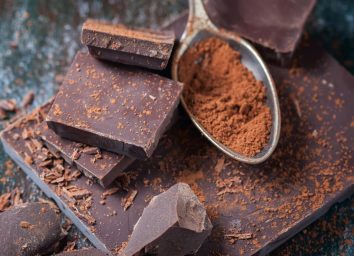The Worst Snack Foods for Your Heart, According to Science
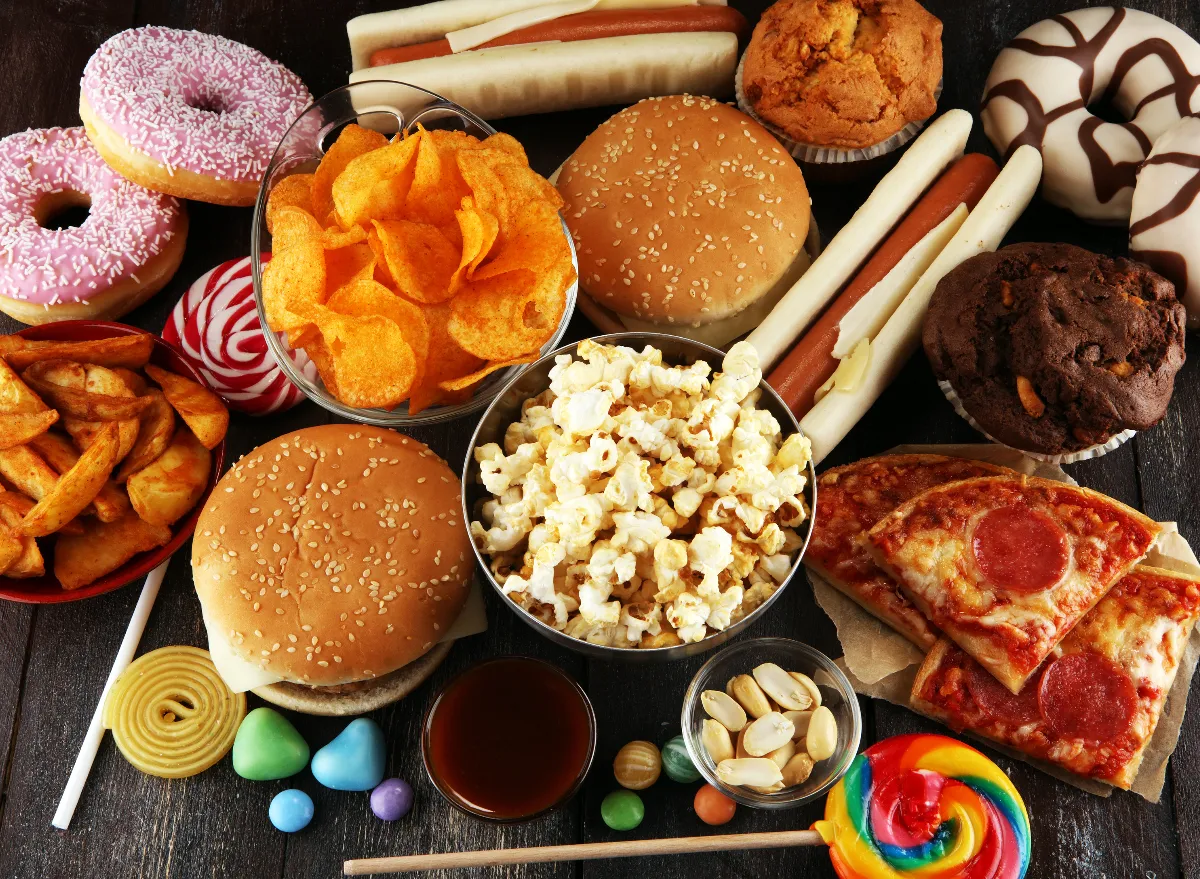
If you've been trying to make your heart health more of a priority, you likely already know the tough truth: Heart disease is the leading cause of death in the U.S. According to the Centers for Disease Control and Prevention (CDC), it accounts for about 1 in 4 deaths in America.
Clearly, it's important to make sure that every food you eat throughout the day is helping your heart, not harming it. There are some obvious suspects you know to avoid (hello, deep-fried restaurant meals!), but some heart-harming foods aren't as obvious. Especially when it comes to snacks.
So we went ahead and rounded up the worst snack foods for your heart. Instead, go ahead and stock up on The 7 Healthiest Foods to Eat Right Now.
Candy
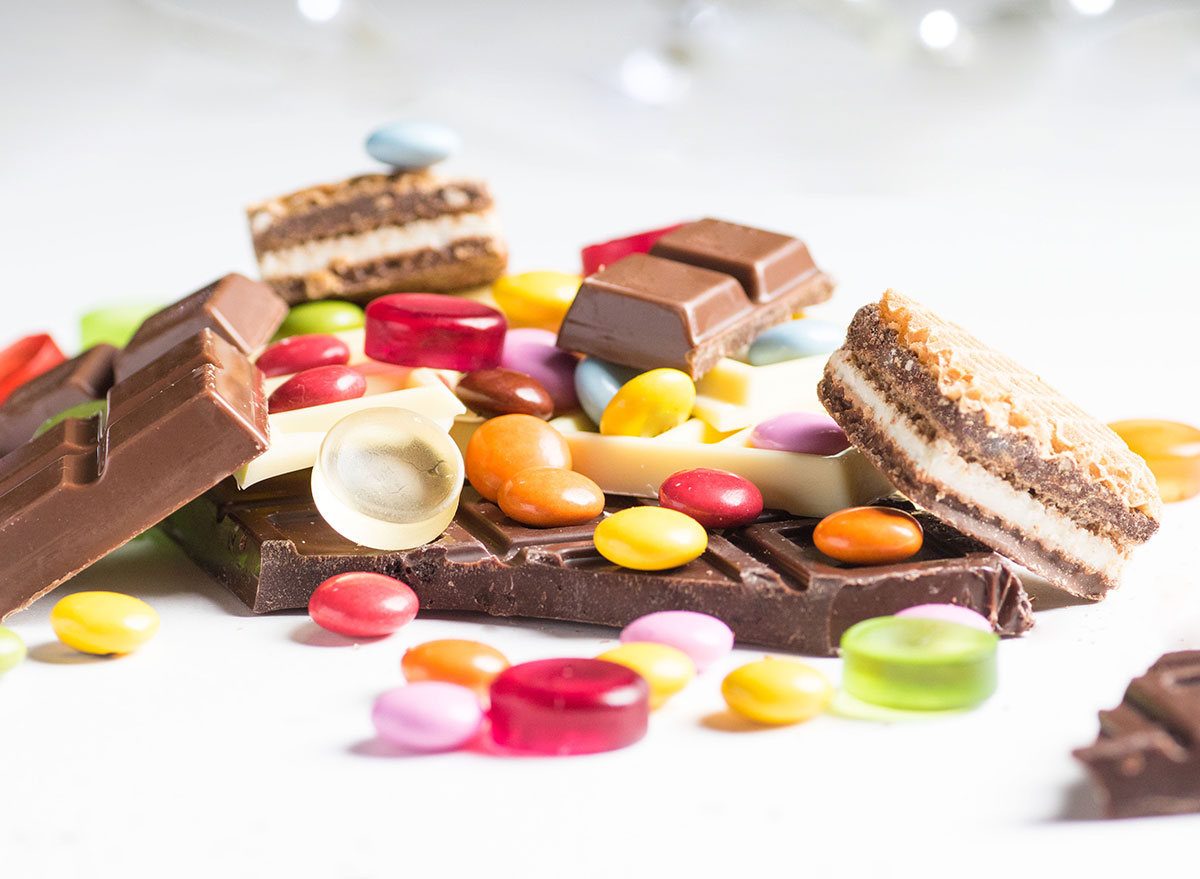
Whether you go for a lollipop or a Snickers bar, eating candy means you're downing a ton of sugar. This can actually increase fatty deposits, putting you at risk for heart disease. If you really need to satisfy your sweet tooth, be sure to go for dark chocolate. It's loaded up with antioxidants and can actually help protect your heart.
Potato Chips
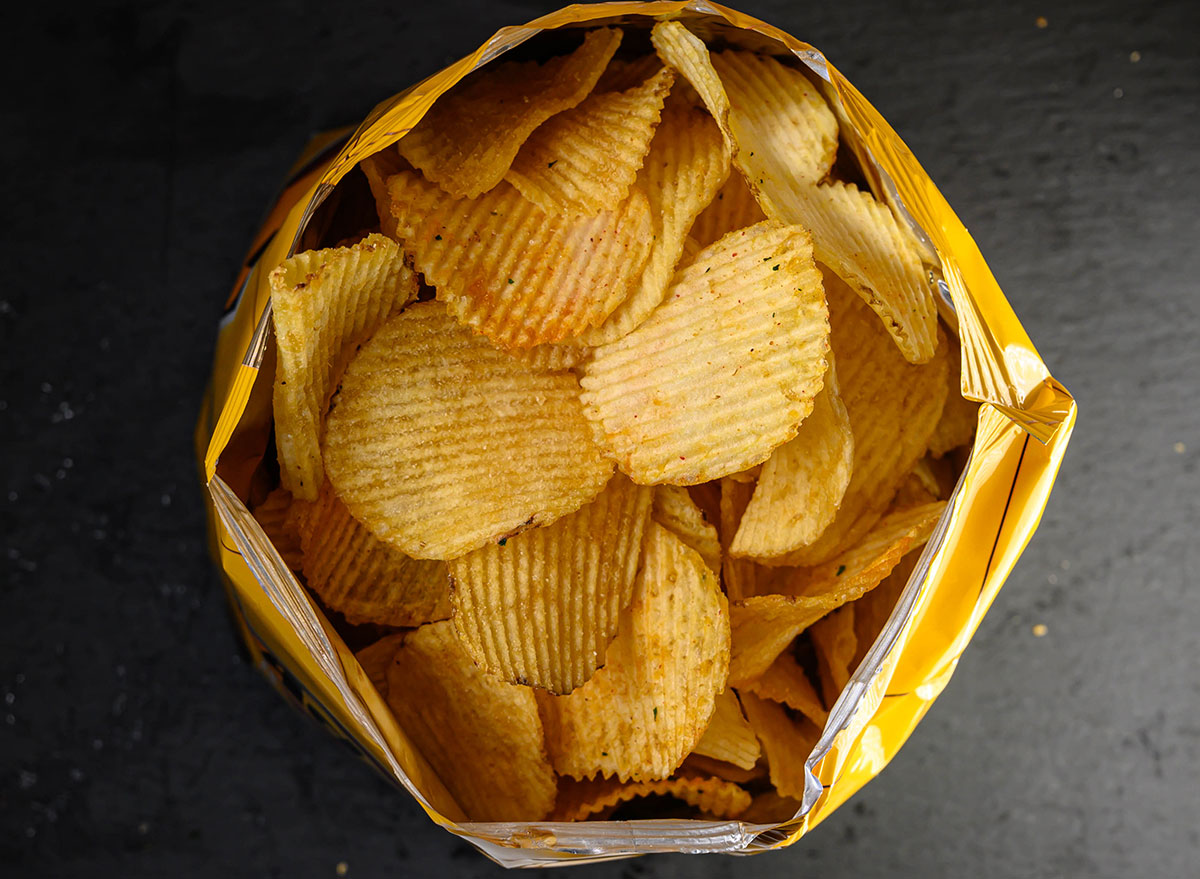
Just like overly sweet snacks, overly salty ones are just as hard on your heart, too.
See, there is tons of evidence that supports the idea that a high sodium intake is associated with a higher risk of high blood pressure. It's no secret that potato chips tend to be very high in sodium. And if you eat super salty snacks like potato chips regularly, over time, you're going to end up setting yourself up to develop hypertension. One study found a connection between eating potato chips and an increase in heart disease.
(And FYI, this is the science-backed way to curb your sweet tooth in 14 days!)
Sugary Cereals

Cereal is obviously a breakfast food, but it can also serve as a seemingly light snack. Well, for fans of sugary cereals, we're here to burst that bubble. One look at the tons of popular cereal options you'll find in stores, and you'll see nutritional labels that are miles long, filled with additives and plenty of sugar.
If you happen to eat more added sugar than what is recommended daily, this is simply bad news for your heart. One study in the Journal of the American Medical Association uncovered that people who get 25% of more of their calories from added sugar are more than twice as likely to die from heart disease. That is compared to those who eat less than 10% of their calories from added sugar. Big yikes.
Cookies
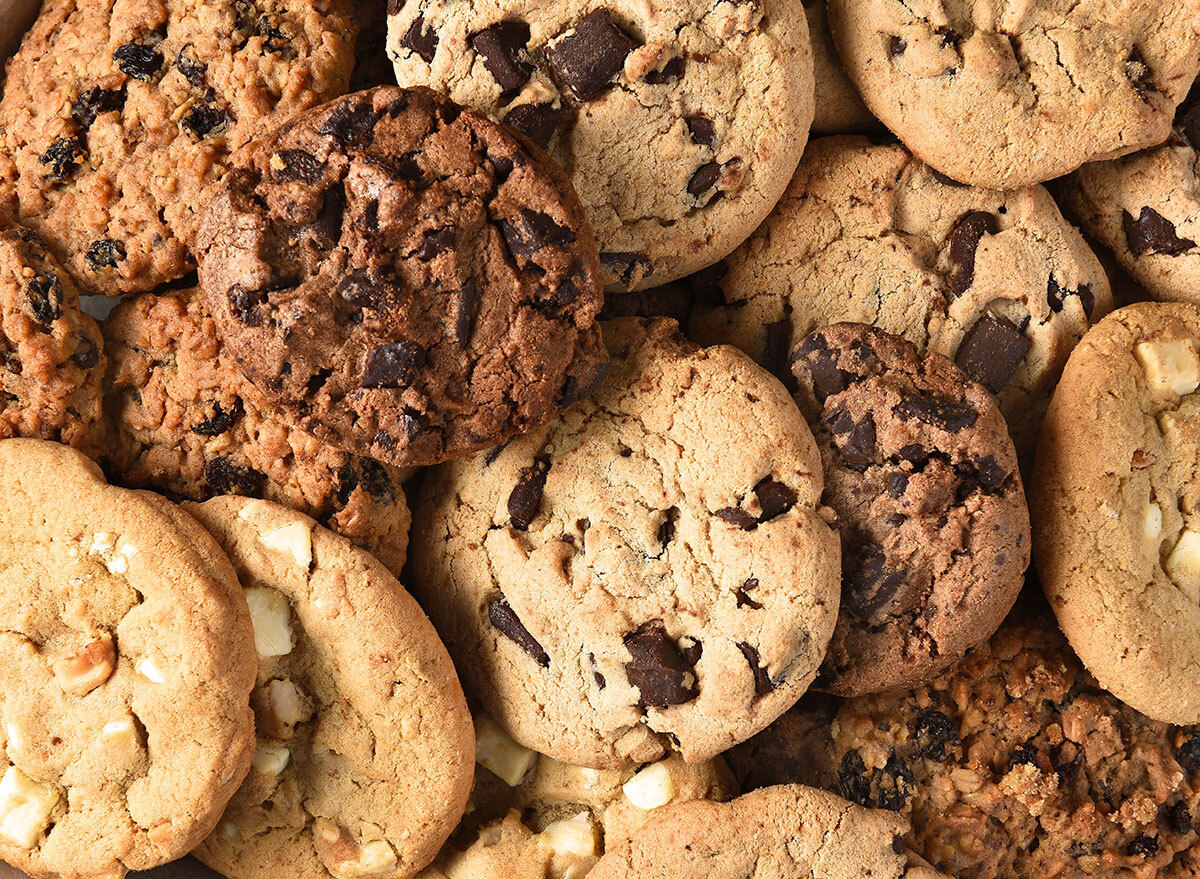
Sorry, but those packaged cookies lining grocery store shelves are a no-go, too. They're loaded up with added sugar and are yet another example of ultra-processed foods. These foods, while very common, are nothing but trouble for your heart. One study found that a higher consumption of ultra-processed foods was directly associated with higher risks of cardiovascular and coronary heart diseases.
Ice Cream

Oh, ice cream. While it's OK to have a few spoonfuls of the classic dessert once in a blue moon, you don't want to make it a habit of downing ice cream pints by yourself often.
And why is that?
Well, it can lead to weight gain, which can increase your cardiovascular risk. Plus, fat-laden and sugary foods like ice cream can potentially increase the risk of heart attacks or strokes, something that is not ideal for anyone, especially those who have heart disease.
Pizza
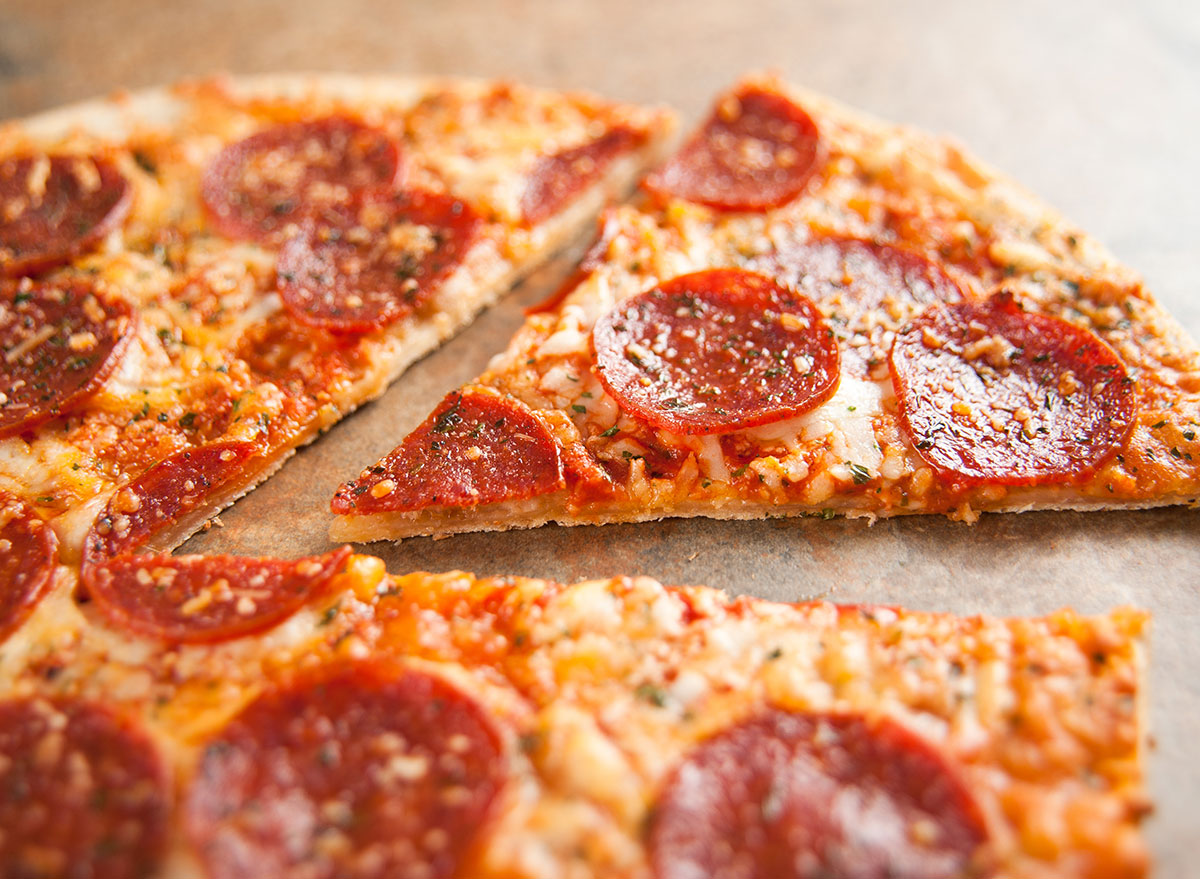
Hey, a little pizza makes for a yummy snack, whether it's a leftover slice or a mini frozen pizza. But you're going to want to think twice, as pizza is one of The American Heart Association's The Salty 6. Keep in mind the AHA recommends no more than 2,300 milligrams of sodium a day, with an ideal limit of no more than 1,500 milligrams for most adults, especially for those with high blood pressure.
If you're able to cut your intake back by 1,000 milligrams daily, that alone can greatly improve blood pressure and heart health. An upside!
Soda

You likely already know it's not the best idea to drink your calories away, so you'll want to skip the soda. Both regular and diet! One study found that regular intake of artificially-sweetened drinks like soda can lead to an increased risk of heart disease and increased blood pressure.

